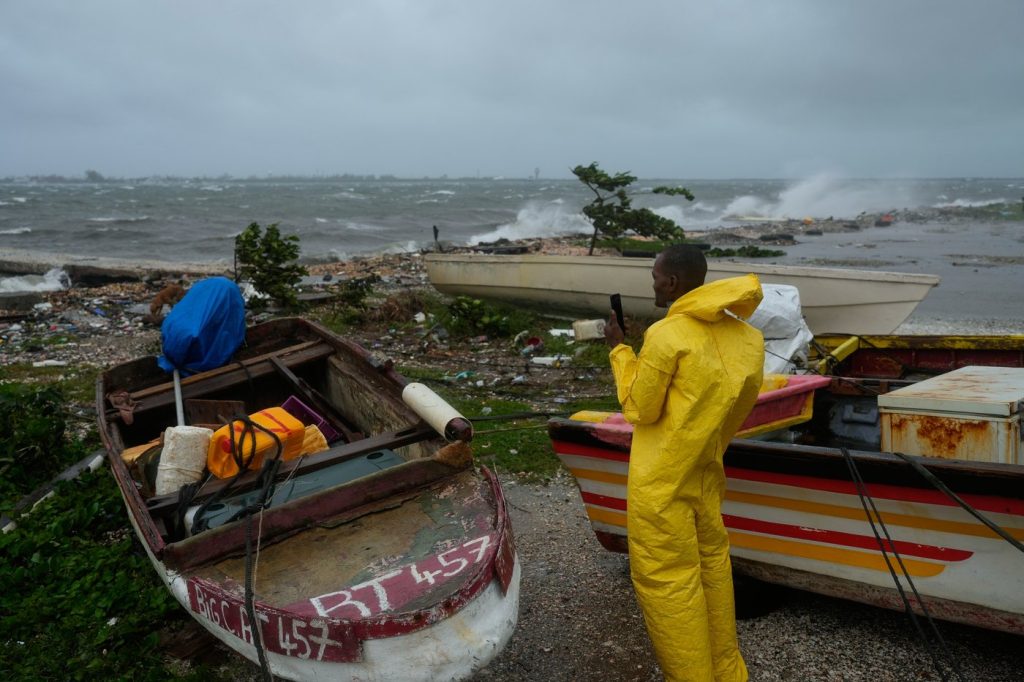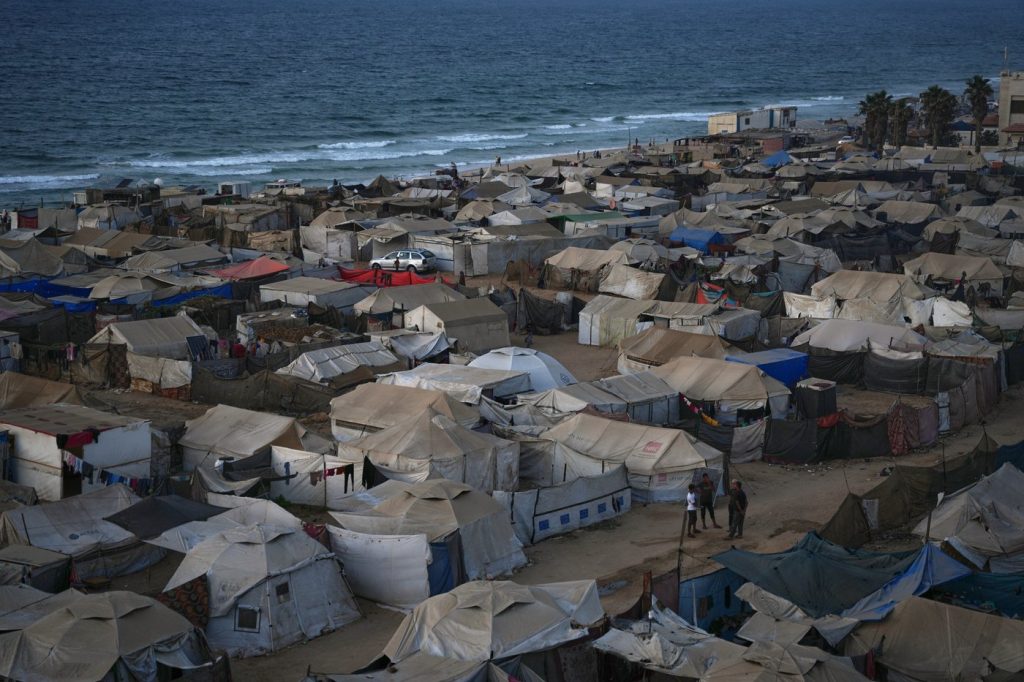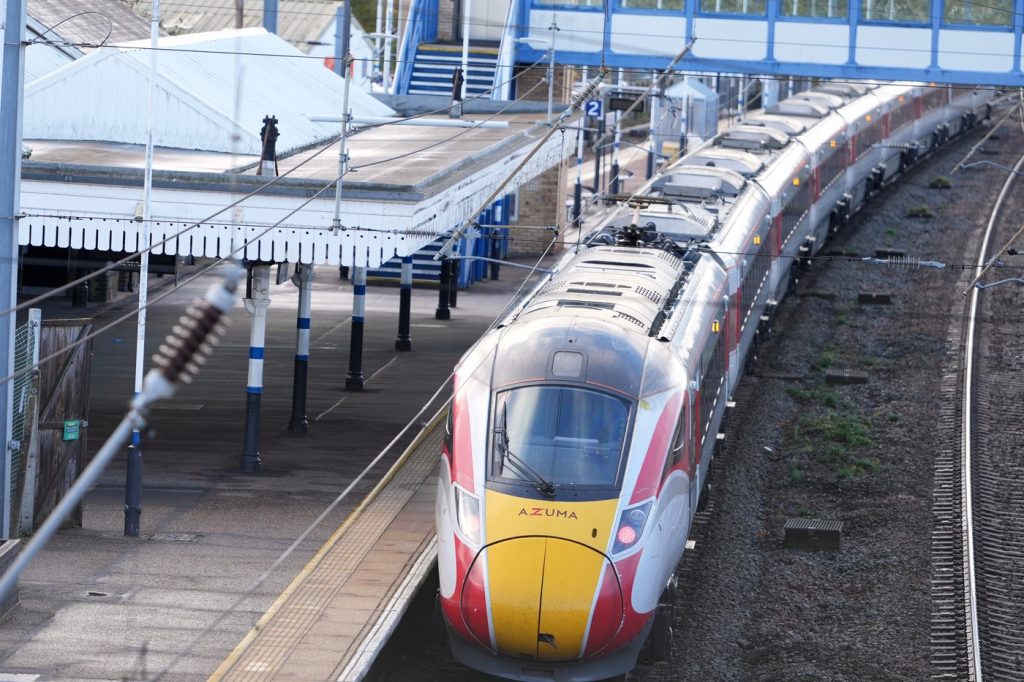Hurricane Melissa has caused extensive damage in Jamaica, particularly affecting the livelihoods of local fishers and farmers. Fisherman Prince Davis, whose 50-foot (15-meter) boat was severely damaged by the storm, received devastating news while he was in Nicaragua seeking customers for his fish business. The hurricane not only wrecked his boat but also destroyed the roof of the house he shares with his parents in the small fishing community of White House in Westmoreland parish.
The storm has been linked to at least 28 fatalities in Jamaica and has brought catastrophic winds of up to 185 mph (298 kph) as well as destructive storm surges. The full extent of the damage is still being assessed, but early evaluations suggest a profound impact on tens of thousands of fishers and farmers who are crucial for food security in their families and communities.
Denver Thorpe, a farmer and regional manager for the Jamaica Agricultural Society, reported losing 15 acres (6 hectares) of mango trees and two greenhouses on his farm located about 29 kilometers (17 miles) northwest in Amity. He described the aftermath of the storm as “absolutely nothing.” The devastation comes shortly after Hurricane Beryl affected more than 50,000 farmers and 11,000 fishers in Jamaica just 15 months earlier, leading to losses estimated at $4.73 billion Jamaican dollars (around $29 million).
Experts from the World Food Program (WFP) noted that similar impacts are anticipated in Cuba and Haiti, both of which are already facing food insecurity. In Jamaica, the agriculture ministry did not respond to inquiries about the damage done to the agricultural sector; however, there are over 200,000 farmers in Jamaica who produce various crops including bananas, melons, and coffee. A large percentage of these producers are small-scale farmers, working on two hectares of land or less, and are considered the lifeblood of the most vulnerable populations.
Before Hurricane Melissa struck, the agriculture ministry advised fishers to secure their equipment and farmers to harvest crops and move livestock to safety. The storm’s aftermath saw areas like St. Elizabeth parish, known as Jamaica’s “breadbasket,” completely submerged, impacting registered farmers and fishers significantly.
For fishers, the lack of electricity post-storm has made it impossible to store their catch due to the absence of ice. Additionally, the slowdown in tourism is expected to reduce demand for fish products. Many local fishers depend on daily small income from their catch to support their families, which highlights the economic vulnerability of the community.
Cuba and Haiti are grappling with similar challenges exacerbated by political and economic instability. In Haiti, the storm led to severe flooding and at least 31 deaths, worsening an existing hunger crisis. Meanwhile, Cuba managed to evacuate 735,000 people, preventing fatalities, but the storm's aftermath could further complicate the country’s efforts to feed its population amid its economic challenges.
In Cuba, reports indicated damage to various crops such as plantains, corn, and coffee across eastern provinces that were affected by the storm. Despite this devastation, some benefits were reported regarding water reservoirs replenished by Melissa's heavy rainfall, alleviating prior drought conditions in the region.
Relief efforts are currently prioritizing immediate needs, including the provision of shelter, food, clean water, and healthcare, while also addressing the restoration of power and communication systems. Moving forward, food producers will urgently require financial assistance to recover lost income, replace equipment and livestock, and acquire new seeds.
The Jamaican government has preparations in place, including reserve funds and insurance policies for disaster recovery. However, it often takes time for aid to reach small-scale producers effectively. Fisherman Prince Davis expressed concern about the timeline for economic recovery and stability in his community, as he prepares to return home to assess the damage.
As the region navigates through the aftermath of Hurricane Melissa, the focus remains on restructuring and bolstering the crucial agricultural and fishing sectors that support the livelihood of countless families.












